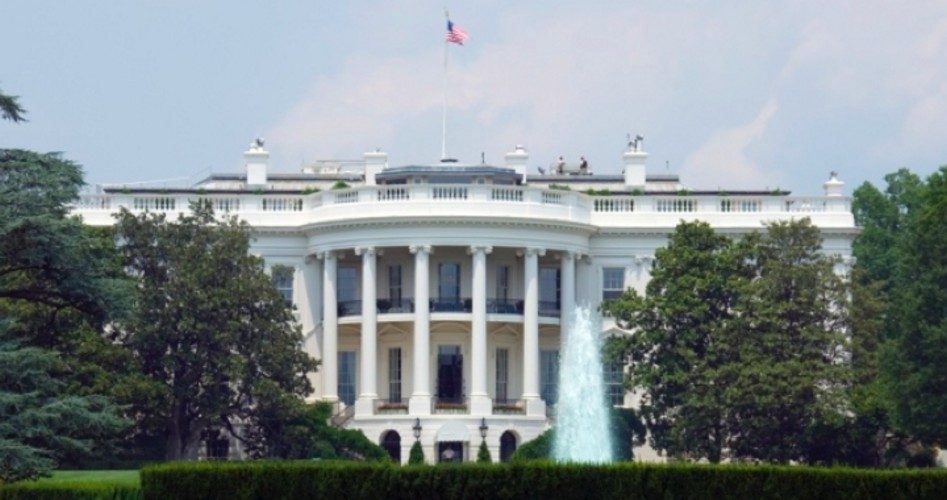
As we enter the summer season, it is illuminating for constitutionalists to remind themselves of the critical and historical debates carried on throughout the nearly four-month blast furnace that was Philadelphia in 1787.
To that end, this writer presents the following account of the principal issue being considered by delegates on June 4, 1787.
Having already settled (for the time being) on a single executive and to the granting to that executive the power to appoint federal officers and to execute the laws passed by the legislature, the members of the convention (sitting as a Committee of the Whole) took up the provision in the Virginia Plan calling for the empowering of the president (in collaboration with the federal judiciary) to negative — that is to say, “veto” — laws passed by the federal legislative branch.
Immediately after the resolution was read to the body, Elbridge Gerry of Massachusetts rose and suggested an amendment that would eliminate judges from the veto process, vesting the entire power in the president, subject to legislative override.
Gerry’s suggestion, and in fact the entire concept of executive negative of laws passed by the legislature, was extremely controversial. Royal governors were persecuted by patriots for their execution of a similar power. So unpopular was the executive veto that only three state constitutions — Massachusetts, New Hampshire, and New York — granted veto power to their states’ governors. Eight of the other 10 state governments gave the legislative branch absolute authority over the passing of laws, with governors being shut out of the process entirely.
It is likely the experiences of these eight states that softened the reaction of many of the men gathered at the Constitutional Convention of 1787. Those states had seen innumerable “unjust and improper laws” enacted by state lawmakers.
“It was an important principle, in this and in the state constitutions, to check legislative injustice and encroachments,” James Madison said during the deliberations on the issue of the locus of veto power.
“The experience of the states had demonstrated that their checks are insufficient,” he added.
As he did on most matters, Alexander Hamilton staked out the most nationalist position in the spectrum of opinions on the veto power. He advocated for the granting of absolute, unchecked veto power to the president, that is to say, veto without even the possibility of override by Congress.
James Wilson of Pennsylvania echoed Hamilton’s sentiment, declaring that the specter of a presidential veto would keep Congress from passing “such laws as it [executive veto] would be sure to defeat.”
“Its silent operation would, therefore, preserve harmony and prevent mischief,” he claimed.
During the debates on ratification that were carried on later that year and into the next, James Wilson said that he considered the vesting of veto power in the president “a very important advantage, that such a man must have every law presented to him, before it can become binding on the United States,” as the president would, better than all others, Wilson opined, “have before him the fullest information of our situation.”
Curiously, the records of the Constitutional Convention and the ratification conventions held throughout the states reveal that most opponents of a presidential veto power worried that such a grant of authority would serve to exalt a president to a throne through its too frequent use.
Therefore, not all the delegates supported such a vast grant of power.
Benjamin Franklin, George Mason, Roger Sherman, and Pierce Butler all rose to oppose executive endowment with unchecked veto power.
If such a power were granted to the president, George Mason warned, “we are not indeed constituting a British government, but a more dangerous monarchy, an elective one.”
Gunning Bedford of Delaware took its a step further, arguing to completely divest the president of any veto authority.
“The representatives of the people were the best judges of what was for their interest and ought to be under no external control whatever. The two branches would produce a sufficient control within the legislature itself,” Bedford argued.
The Hamilton-backed proposal for ceding to the president absolute veto power over laws passed by Congress went down in defeat, as did an alternative measure put forward by Pierce Butler and Benjamin Franklin that would have granted to the executive essentially the power to press pause on a law passed by Congress, for a certain number of days.
Finally, Gerry’s original motion that the president be given veto power subject to congressional override was approved by the convention, eight states to two (Connecticut and Maryland voting against the measure). Just over a month later, on July 18, this definition of the veto power was officially approved for inclusion in the Constitution.
On a few other occasions throughout the next three months of debates, several members reintroduced proposals to unite the president and the judiciary in exercising the veto power.
Each of these attempts was thwarted in its turn, with opponents arguing successfully that judges were “not qualified to act” on laws passed by the legislature that were “oppressive or unwise.” For that reason, the procedure passed on June 4 eventually became part of the final Constitution.
As it stands today, the threat of a veto is used as a presidential “shot across the bow,” warning lawmakers that unless they submit a proposed law that the president can agree with, he will reject the measure, using the law’s defeat by the executive as an example of legislative lassitude and failure to “get things done.”
During his seven-plus years as president, Barack Obama has vetoed nine acts of Congress. For comparison, George W. Bush, his predecessor, tallied 12 vetoes, four of which were overridden by Congress. The record for vetoes executed by a president in terms of absolute numbers is held by Franklin D. Roosevelt, who vetoed 372 bills during his 11-plus years in the White House. When apportioned by year, however, Grover Cleveland is the veto victor, sending 346 bills back to Congress during his two terms.



